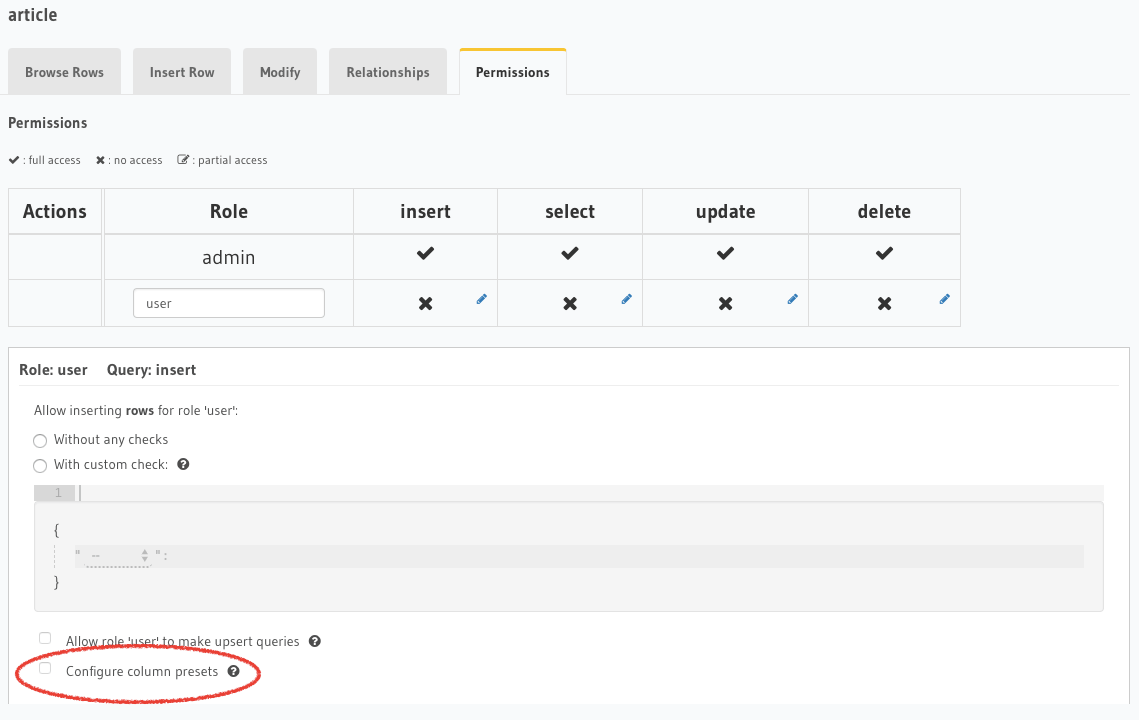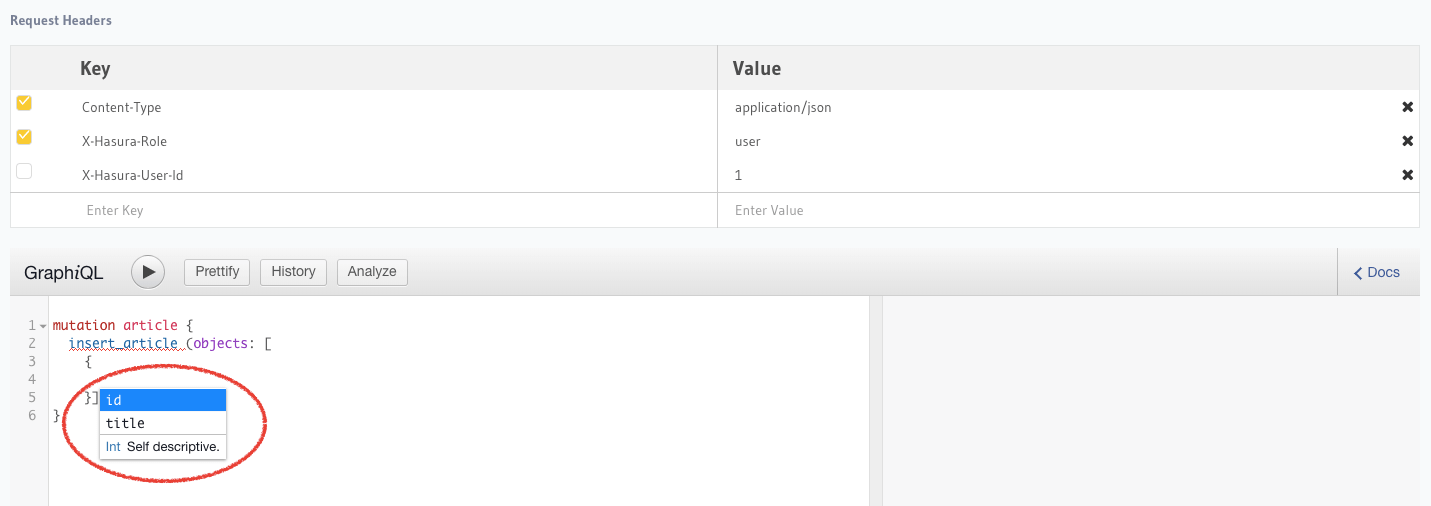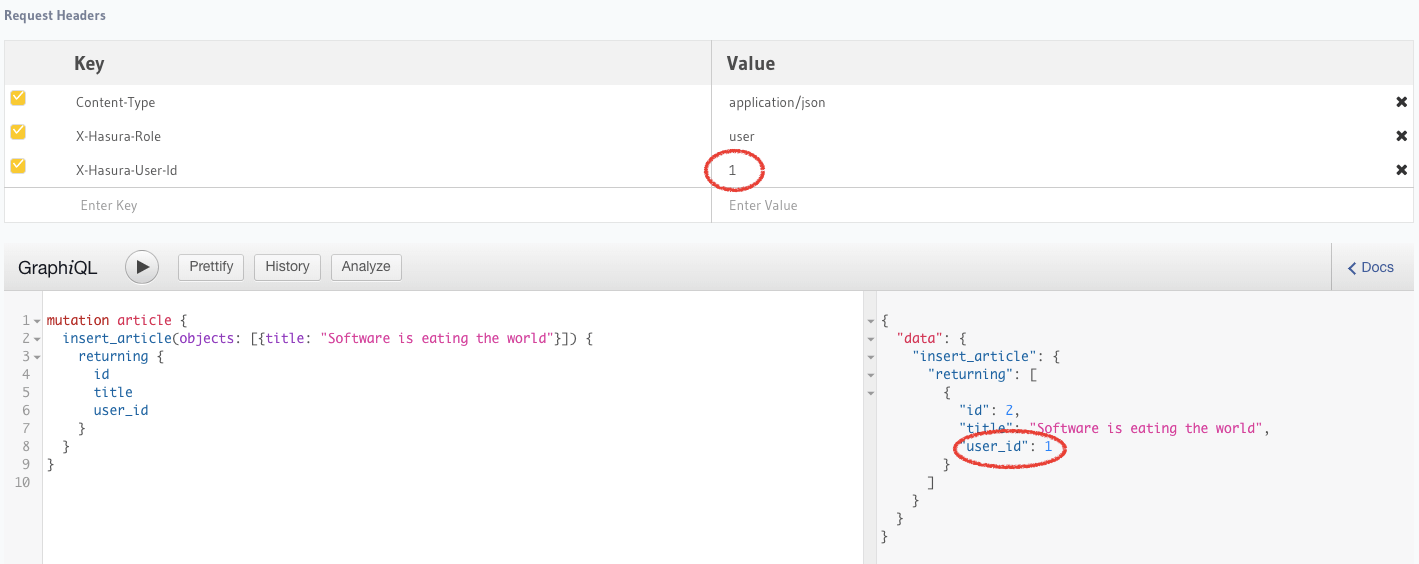Postgres: Setting Values for Fields Using Role-Based Column Presets
Introduction
Let's say you want certain fields to have their values set automatically using session variables or fixed values when a row is created/updated with a particular user role.
Hasura GraphQL Engine's column presets let you define role-based values for any field/column. These values can either be a session variable value or a static value.
Column preset values are not overridable by the user. ie. If a column has a preset defined for a given role, access to the column for the mutation will be restricted for users with that role.
Example: Say we have a field user_id in a table article which is to be set to the id of the user, from the value
of the user's session variable whenever a new row is added to the article table.
Step 1: Configure a column preset
- Console
- CLI
- API
The column preset option is available under the Permissions tab of a table. Open the Console and head to
Data -> [article] -> Permissions:

Enable the column preset option to define presets for one or more columns. For each column, you can pick between setting the preset using a static value or from a session variable.

For our chosen example, we'll use the from session variable option and configure the user_id column to be
automatically populated based on the value of the X-Hasura-User-Id session variable.
You can set column presets in the tables.yaml file inside the metadata directory:
- table:
schema: public
name: article
insert_permissions:
- role: user
permission:
check: {}
set:
user_id: x-hasura-User-Id
columns:
- content
- rating
- title
backend_only: false
Apply the Metadata by running:
hasura metadata apply
You can add column presets by using the pg_create_insert_permission metadata API:
POST /v1/metadata HTTP/1.1
Content-Type: application/json
X-Hasura-Role: admin
{
"type" : "pg_create_insert_permission",
"args" : {
"source": "<db_name>",
"table" : "article",
"role" : "user",
"permission" : {
"check" : {},
"set":{
"user_id":"X-Hasura-User-Id"
},
"columns":["title", "content", "rating"]
}
}
}
To set a column preset for a nested object's column, simply set the corresponding column preset in the remote table.
Step 2: Run an insert mutation
Head to the GraphiQL interface in the Console and try making an insert mutation on the article table with the
following headers (to run through this example, don't forget to also grant the user role sufficient permissions to
select from the article table):
X-Hasura-Role-->user(to test the behavior for the configured role)X-Hasura-User-Id-->1(this is the value we should expect in theuser_idfield)
As mentioned earlier, you'll notice when you add the X-Hasura-Role header that the field, user_id, is no longer
available as the mutation type's field:

Now, if we run the following insert mutation, we'll see that the user_id field is indeed being set with the value
passed in the X-Hasura-User-Id variable:

Not passing the configured header will result in a run-time error:
{
"errors": [
{
"path": "$",
"error": "\"x-hasura-user-id\" header is expected but not found",
"code": "not-found"
}
]
}